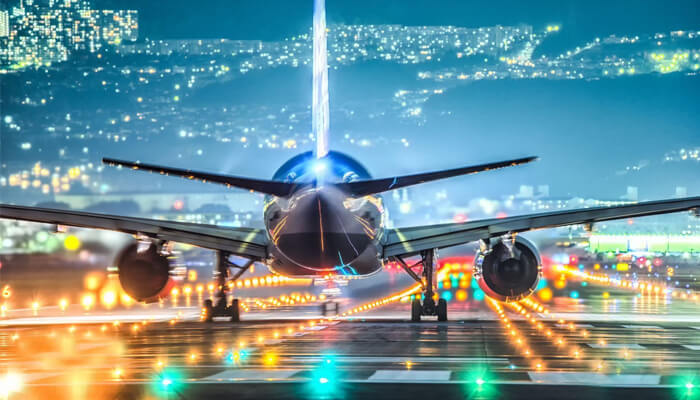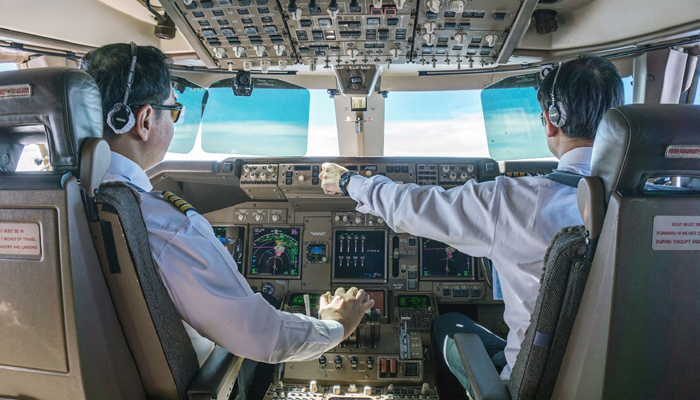A lot of people have misconceptions about what commercial pilots do. They presume that if someone has a commercial pilot’s license, they fly for an airline. Even though a commercial pilot can be an airline pilot, the reverse isn’t always true
Commercial pilots aren’t always airline pilots. it’s also can be cargo pilots, tour pilots, or backcountry pilots. Or They might work as ferry pilots, glider tow pilots, or flight instructors.
WHAT DOES A COMMERCIAL PILOT DO?
Commercial pilots, pilot passengers, and cargo aircraft. They may also fly aircraft used for rescue and firefighting operations, depending on their training, experience, and qualifications. Some are in charge of charter flights, crop dusting, and aerial photography.
IS THERE A DIFFERENCE BETWEEN COMMERCIAL AND AIRLINE PILOTS?
Airline pilots fly passengers on regularly scheduled flights. To fly as an airline pilot, you must first obtain an Airline Transport Pilot (ATP) certificate, the highest pilot license issued by the FAA. However, before obtaining an ATP certificate, all pilots must first obtain their private pilot and commercial pilot’s licenses.
WHAT IS THE PROCESS OF BECOMING A COMMERCIAL PILOT?
With the proper training, almost anyone can learn to fly a plane and operate an aircraft. However, there are specific six steps that must be taken in order:
Obtain your private pilot’s license.
Earn an instrument rating.
Receive your commercial pilot’s license.
Earn a license as a flight instructor.
Gain experience.
Research flight schools
Get your medical certificate
Get a Commercial pilot certificate
Get your FAA Student Pilot certificate
Have a flight training
COMMERCIAL PILOTS FLIGHT HOURS REQUIREMENTS
Total Flight Time 250 Hours
Pilot-In-Command (PIC) 100 Hours
Cross-Country PIC 50 Hours
Instrument Training 10 Hours
Technically Advanced Airplane (TAA) 10 Hours
HOW LONG TO BECOME A COMMERCIAL PILOT?
It takes over five months to earn your private pilot license ppl at ATP Flight School, starting with zero experience requirements.
WHAT IS A COMMERCIAL PILOT’S TYPICAL SALARY?
Salaries can vary depending on the job, range of experience, and employer. Salaries may also vary depending on geographical or regional location.
Common salary in the U.S.: $77,698 per year
Some salaries range from $15,000 to $186,000 per year.
IS A UNIVERSITY DEGREE REQUIRED BEFORE BEGINNING PILOT TRAINING?
You do not need a college degree. However, in addition to the actual flying experience, many airlines may also mandate that applicants hold a bachelor’s degree. In any case, having a bachelor’s degree will increase your chances of working in the aviation industry.
WHY BECOMING A COMMERCIAL PILOT IS A REWARDING CAREER?
1. TRAVELLING IS A MAJOR PERK OF THIS CAREER
Being an airline pilot means you have opportunities to travel – and get paid to do it!
With all the different routes that pilots travel, every working day means taking off in one country only to land in another – potentially in a country you haven’t explored yet.
Depending on your schedule you might end up staying overnight or longer, giving you the opportunity to explore new cities and experience different cultures.
2. AN OFFICE IN THE CLOUDS
Not many people in the world can say they have an office in the clouds. Most airline pilots say it’s a view they never grow tired of. From thunderstorms in distant clouds to never-ending blue skies, it’s easy to see why.
3. TRAVEL DISCOUNTS FOR FAMILY AND FRIENDS
Being an airline pilot, it is likely you will have access to discounted (and sometimes free) plane tickets for family and friends, which means good deals on great vacations.
Some airlines may ask friends and family to pay charges and taxes, but this is likely to be the extent of what your loved ones will have to pay – in some cases, you can even upgrade to business or first class!
And in addition to airfare, a number of hotels provide discounted prices as well!
4. CAREER FOCUS
If you’re looking for a job with major job satisfaction, you’ve found it. Commanding a plane filled with passengers and getting them safely from A to B is as satisfying as it gets.
One of the major benefits of being a pilot is you can expect a hugely rewarding career; from taking your first solo flight, completing your first landing, flying to a new destination to overcoming challenges, every day is rewarding as a pilot in the cockpit.
5. WORK STAYS AT WORK
No one likes taking their work home with them, and aside from studying for annual tests, pilots leave their work on the plane. There’s nothing to take home once you finish your day and close that cockpit door.
6. FLEXIBLE WORKING
Flexible working has always been a major advantage of being a pilot. It’s not your typical 9-5, Monday to Friday job.
7. CHALLENGE YOURSELF
Being a pilot means constantly learning. With so many flights departing airports every single day, no two flights are ever the same – even when you’re a pilot. Each day can bring a new challenge, which not only keeps things exciting but also encourages you to become a better pilot.
8. MEET NEW PEOPLE
As a pilot, you will constantly have the opportunity to meet new people. From your flight crew to passengers, to residents of the cities you visit, you’ll be introduced to people and cultures you may not have otherwise had the opportunity to become acquainted with.
9. SALARY AND HEALTH BENEFITS
Aviation is a rewarding career that offers personal and career growth opportunities. Pilots earn competitive salaries with opportunities to further their careers in the cockpit or broaden their career path into aviation management.
10. DO WHAT YOU LOVE
Most importantly, becoming a pilot allows you to do what you love. And as the saying goes; ‘if you love what you do, you’ll never work a day in your life.’


